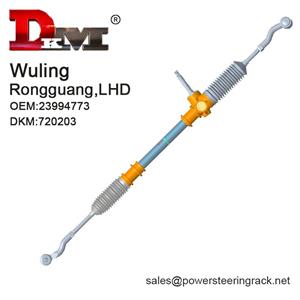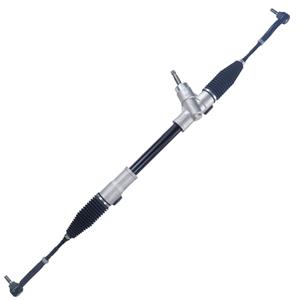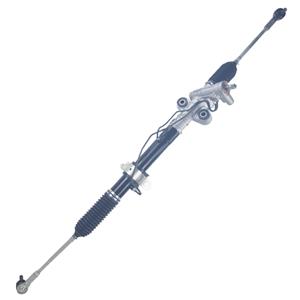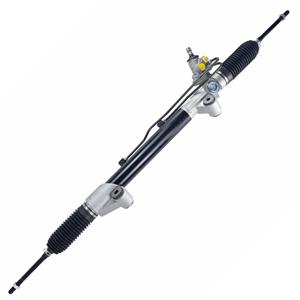My power steering is whining, but the fluid level is not low. What could it be?
Power steering systems are designed to help drivers easily control the steering wheel, especially when driving at low speeds and parking. However, if you hear an abnormal "whining" sound from the power steering system, it may be worrying, especially if you have already checked the power steering fluid level and found that it is not low. Since the fluid level is normal, what could the problem be?
This article will take a deep look at the reasons why the power steering system makes a "whining" sound, as well as possible solutions.
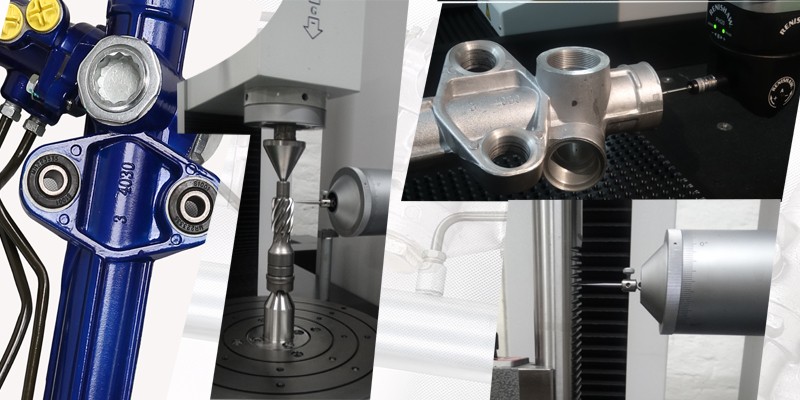
How does the power steering system work?
Before discussing the problem, understanding the basic working principle of the power steering system can help us better understand why the "whining" sound is made.
Power steering systems are mainly divided into two types: hydraulic power steering and electric power steering. In a hydraulic power steering system, the power steering pump is the core component of the system. It is driven by the engine through a belt to generate hydraulic pressure and deliver the power steering fluid to the steering rack or gearbox, thereby helping the driver to steer easily. In an electric power steering system, an electric motor replaces the hydraulic pump, detects the driver's steering action through a sensor, and provides corresponding auxiliary power.
The fluid pressure, integrity of the lines, and the operating condition of the pump in the hydraulic power steering system all affect the normal operation of the system. When problems occur in these components, the system may make abnormal noises, such as whining.
What are the possible causes of power steering whining?
Since the power steering fluid level is normal, it means that other factors may cause the noise. Here are a few common reasons that may cause whining:
1. Air entering the hydraulic system
Air entering the hydraulic system is one of the most common causes of power steering system whining. The hydraulic system needs to remain completely sealed to ensure that the fluid can flow under high pressure. If air infiltrates the system, air bubbles will flow with the fluid, which will cause cavitation in the pump. This phenomenon will cause the pump to whinge.
There may be several reasons for air entering the system, such as loose lines, damaged seals, or internal malfunctions in the power steering pump. Once air enters the system, the hydraulic pump will make noises due to the unstable pressure of the fluid. Although the fluid level looks normal, there may actually be air inside the system, which is the source of the noise.
Solution:
To solve this problem, the air in the system needs to be bled out. This can usually be done with a dedicated power steering bleeding procedure. The owner can try to repeatedly turn the steering wheel to the extreme position while keeping the vehicle idling to allow air to flow with the fluid and out of the system. If the problem is serious, it is recommended to seek the help of a professional technician for a comprehensive inspection and bleeding operation.
2. Aging or damage to the power steering pump
The power steering pump is one of the most critical components in the hydraulic steering system. Even if the fluid level is normal, if the vanes, bearings or other parts inside the pump fail due to aging or wear, the pump may produce a whining sound when it is running.
Wear of the pump may affect the pressure it produces, resulting in a decrease in the performance of the steering system, especially when steering at low speeds. The noise is an early warning sign of poor pump operation.
Solution:
If it is determined that the power steering pump is aged or damaged, the best solution is to replace the pump. Before replacing the pump, the operating status of the pump can be tested with professional equipment to confirm whether it is the real source of the noise.
3. Loose or worn belt
The hydraulic power steering pump is driven by the engine's belt. If the belt connecting the pump is loose or worn due to age, it may also cause the system to whimper. This noise usually varies with the engine speed, especially when accelerating or decelerating.
A loose belt will cause the pump to not generate enough hydraulic pressure, further increasing the load inside the system and making abnormal noise.
Solution:
Check the condition of the power steering pump belt. If the belt is found to be worn, loose or cracked, it should be replaced as soon as possible. In addition, make sure the belt tension is appropriate and avoid looseness.
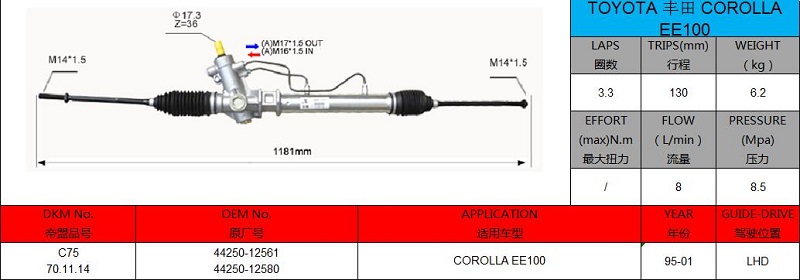
4. Hydraulic line blockage or damage
The power steering fluid flows through the pipeline in the system. If the hydraulic pipeline is blocked, folded or damaged, the flow of the fluid will be blocked, which will cause the hydraulic pump to work overload and whimper. Especially as the vehicle ages, impurities or sediments may accumulate inside the pipeline, affecting the flow of fluid.
In addition, the seals at the hydraulic line connection may leak due to aging. Although the fluid level has not dropped significantly, the leakage will cause unstable pressure in the system, causing the pump to make noise.
Solution:
Check the condition of the hydraulic line to ensure that there are no folds, cracks or leaks. If there is impurity blocking the inside of the pipe, it is recommended to thoroughly clean the hydraulic system or replace the damaged pipe.
5. Fluid deterioration or contamination
Although the power steering fluid level is normal, if the fluid is aged or contaminated, it may still cause abnormal noise in the power steering system. After the power steering fluid is used for a long time under high pressure conditions, the fluid may lose its lubricating and cooling properties, resulting in increased friction in the system, which will cause noise.
Contaminated power steering fluid may contain tiny impurities or moisture, which can enter the pump or gear assembly and disrupt its normal operation, causing noise and other steering problems.
Solution:
If the power steering fluid is suspected to have deteriorated or contaminated, it is recommended to replace the power steering fluid in time. When replacing the fluid, make sure to use hydraulic fluid that meets the vehicle's specifications and thoroughly clean the hydraulic system to ensure that impurities no longer enter the system.
6. Wear of internal components in the steering system
Other mechanical parts in the power steering system (such as racks and gears) may also wear out due to long-term use. This wear may cause the fit between the rack and the gear to be not tight enough, which will produce metal friction or whining sounds.
Solution:
Check the condition of the steering rack and pinion, especially when the vehicle has traveled a long mileage. If it is found that the parts are severely worn, it is recommended to replace or repair them to avoid further aggravation of the noise.
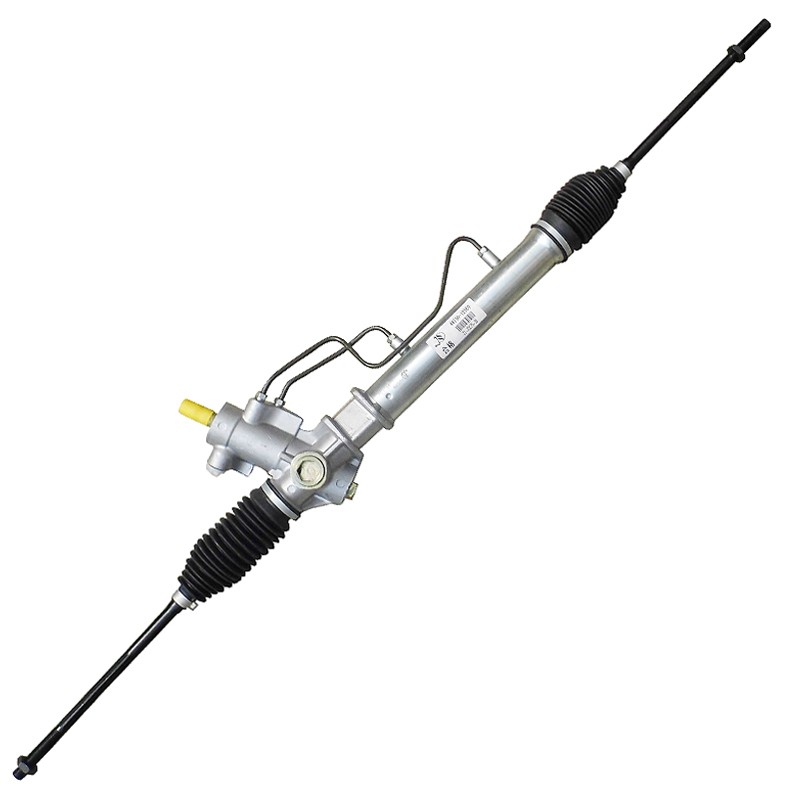
What are the potential risks of power steering noise?
The noise of the power steering system is not just an uncomfortable phenomenon, it often indicates a potential mechanical failure. If not handled in time, it may lead to more serious problems, such as steering failure, reduced vehicle control ability, etc.
1. Safety risk
If the power steering pump or other parts of the steering system have problems due to failure, the driver may find that the steering wheel becomes heavy or even difficult to control when turning or parking at low speed. At high speeds, although the steering system does not rely on power steering fluid to provide steering force, in certain emergency situations, the failure of power steering may affect the driver's ability to control the vehicle and increase the risk of traffic accidents.
2. Mechanical damage
If the cause of the noise is not solved in time, the power steering pump or other parts may be further damaged due to long-term excessive load. This will not only lead to an increase in repair costs, but may also cause a chain reaction to related systems such as the engine belt, leading to more mechanical failures.
3. Economic Cost
If power steering noise is ignored, it may cause further damage within the system, ultimately requiring more expensive repairs or replacement of the entire steering system. Therefore, timely inspection and repair of noise problems can avoid unnecessary high repair costs.
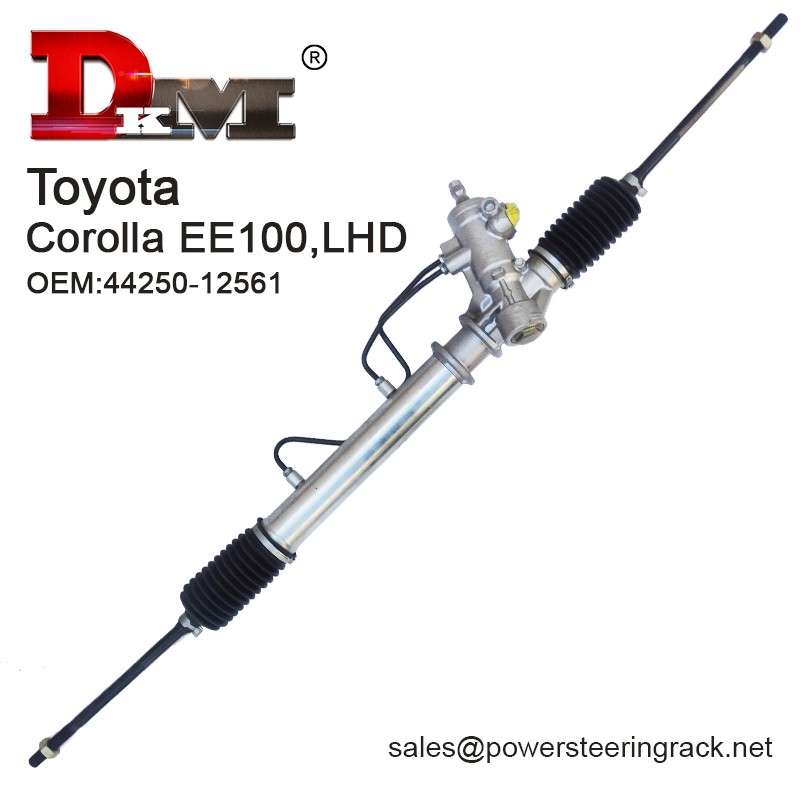
Power Steering Gear Supplier Offering Competitive Discounts
Guangdong Diamond Auto Parts Co., Ltd. (DKM) is a leading manufacturer of power steering gears, providing high-quality solutions at competitive prices. We supply steering systems for global brands such as Toyota, Honda, and Mitsubishi, offering both standard and customized solutions to meet the needs of different vehicle models. With over 280 CNC machining and heat treatment devices, our factory ensures precise and reliable products.

